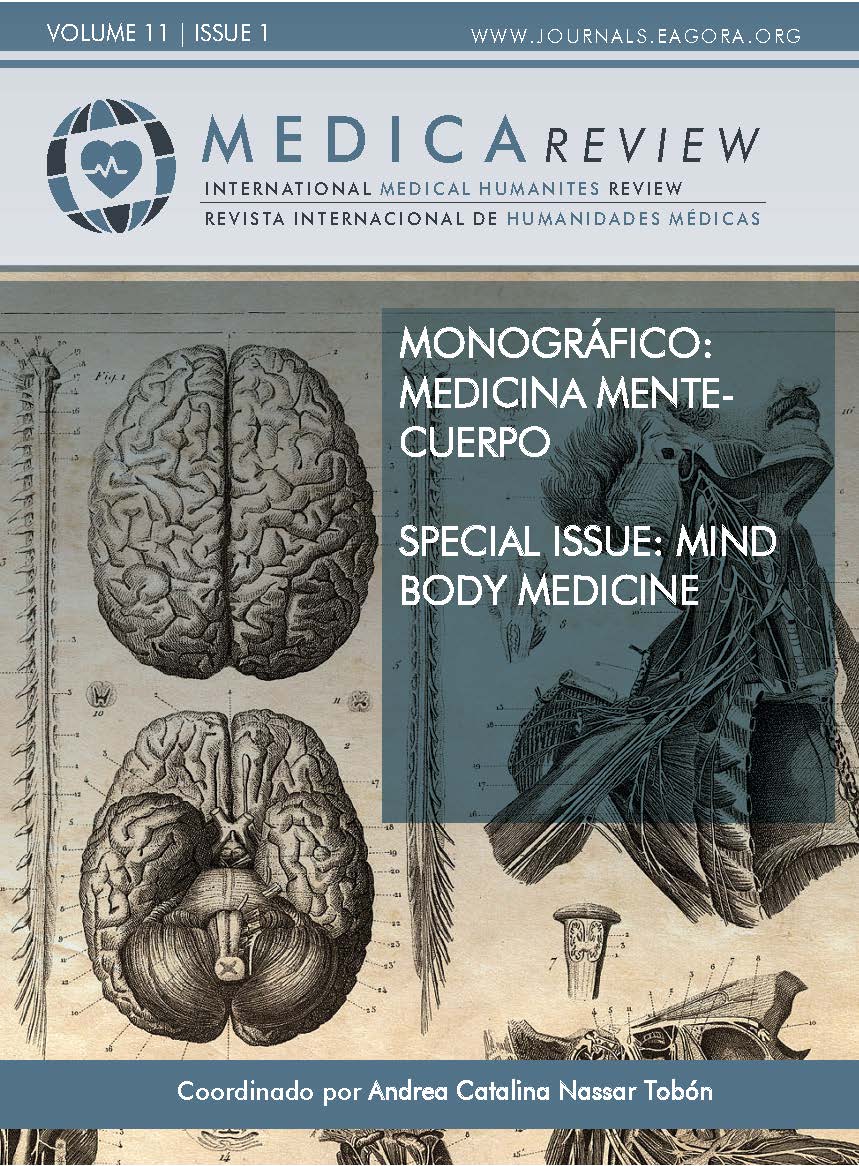Body Proper, Appropriated
A Biopolitical Reading of Aristotle’s Concept of Habit
DOI:
https://doi.org/10.37467/revmedica.v11.4586Keywords:
Aristotle, Biopolitics, Bourdieu, Dispositive, HabitAbstract
The concept of habit receives a technical-philosophical use in the work of Aristotle that entails a dialectics between the agent and a system in which he is situated. In its dual active and passive dimensions, the notion of habit enables to understand the living body as a body proper and, at the same time, as an appropriated body. The habit is the fundamental biopolitical dispositive by which the living body is appropriated and subjected to the Body Politic and its logic, made explicit in Pierre Bourdieu’s concept of habitus.
References
Aristóteles (1998). Metafísica. (Edición trilingüe griego-latín-español por Valentín García Yebra) Gredos.
Aristóteles (2009). Categorías. (Traducción, Introducción y Notas de Eduardo Sinnot). Colihue.
Aristóteles (2015). Ética Nicomaquea. (Traducción, Introducción y Notas de Eduardo Sinnot). Colihue.
Aristóteles (2015). Acerca del alma. (Traducción, Introducción y Notas de Marcelo Boeri). Colihue.
Bourdieu, P. (2007). El sentido práctico. Siglo XXI Editores.
Buffone, J. (2023). Una fenomenología de los hábitos motrices: la dimensión normativa e intersubjetiva del esquema corporal. En I. Audisio y F. G. Rodríguez (Eds.). Pensamiento cuerpo a cuerpo. Intersubjetividad, cuerpo y lenguaje. Editorial UNC. En prensa.
Derrida, J. (2011). El tocar, Jean-Luc Nancy. Amorrortu.
Dukuen, J. (2018). Habitus y dominación en la antropología de Pierre Bourdieu. Una crítica desde la fenomenología de Maurice Merleau-Ponty. Biblos.
Han-Pile, B. (2013). Freedom and the ‘choice to choose oneself’ in Being and Time. En M. Wrathall, The Cambridge Companion to Heidegger’s Being and Time (pp. 291- 319). Cambridge University Press. DOI: https://doi.org/10.1017/CCO9781139047289.014
Han-Pile, B. (2017). Hope, Powerlessness, and Agency. Midwest Studies in Philosophy, XLI, 175-201. DOI: https://doi.org/10.1111/misp.12069
Liddell & Scott (2007). Abridged Liddell & Scott’s Greek-English Lexicon. Simon Wallenberg Press.
Lockwood, T.(2013). Habituation, habit, and Character in Aristotle’s Nichomachean Ethics. En T. Sparrow, & A. Hutchinson (Eds). A history of habit: From Aristotle to Bourdieu. Lexington Books.
Martínez, A. T. (2007). Pierre Bourdieu: Razones y lecciones de una práctica sociológica. Manantial.
Oele, M. (2012). Passive Dispositions: On the relationship between pathos and héxis in Aristotle. En Philosophy. Paper 36. DOI: https://doi.org/10.5840/ancientphil201232230
Ralón De Walton, G. (2010). La lógica práctica y la noción de hábito. Anuario Colombiano de Fenomenología, 4, 243-262.
Rodrigo, P. (2004). La dynamique de l’héxis chez Aristote : L’état, la tenue et la limite. Alter, 12, 11-26.
Wehrle, M. (2021). Bodies (that) matter: the role of habit formation for identity. En Phenomenology and the Cognitive Sciences, 20, pp. 365-386. DOI: https://doi.org/10.1007/s11097-020-09703-0
Downloads
Published
How to Cite
Issue
Section
License
Those authors who publish in this journal accept the following terms:
- Authors will keep the moral right of the work and they will transfer the commercial rights.
- After 1 year from publication, the work shall thereafter be open access online on our website, but will retain copyright.
- In the event that the authors wish to assign an Creative Commons (CC) license, they may request it by writing to publishing@eagora.org









